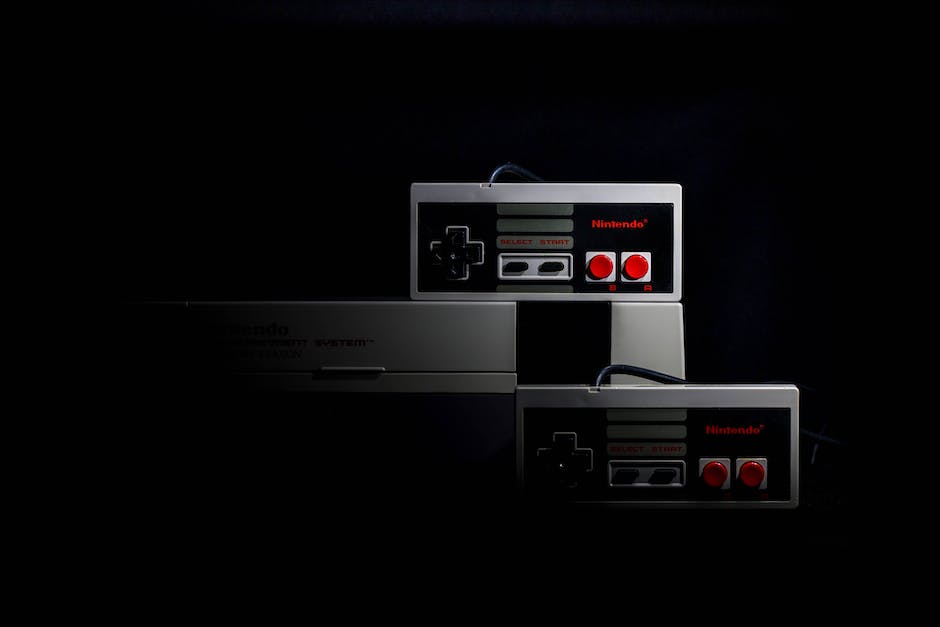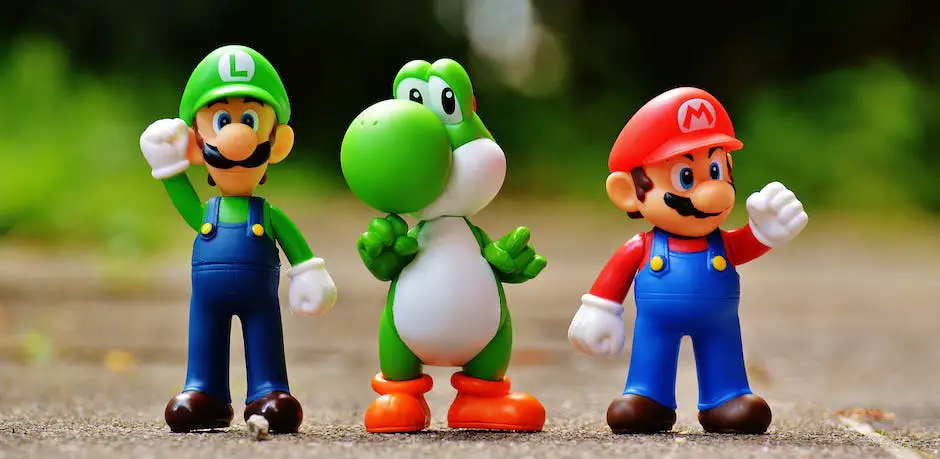Hiroshi Yamauchi, the mastermind behind Nintendo’s transformation from an obscure playing card company to a renowned global leader in the video game industry, lived a life steeped in innovation and business prowess. Born into a humble family, Yamauchi ascended to Nintendo’s presidency in his early twenties—an ascent that came with daunting challenges. However, his strategic acumen and tenacity propelled the company towards unimagined heights. From the invention of groundbreaking game consoles and video game franchises to the establishment of Nintendo as a brand synonymous with quality and enjoyment, Yamauchi’s reign was marked by daring leaps in corporate strategy and technological innovation. This exploration of his life delves into the impactful and transformative story of Hiroshi Yamauchi.
Yamauchi’s early life was marked by a rupture in his family. Yamauchi’s parents divorced when he was five, and his father abandoned the family. This led Yamauchi to be raised by his grandparents. His mother placed a lot of emphasis on education and strove to provide a strong academic foundation for her son.
Despite his family’s hardships, Yamauchi managed to get an education, attending Waseda University in Tokyo where he studied law. However, he never finished his degree. The drastic turn in his life occurred in 1949 when his grandfather, Sekiryo Kaneda, suffered a stroke and was unable to continue leading Nintendo. At the young age of 22, Yamauchi was summoned back from university to take over the family business.
Rise to Power at Nintendo

When the young and relatively inexperienced Hiroshi Yamauchi took over as Nintendo’s president, he faced resistance from established executives who doubted his ability to lead. Unfazed, Yamauchi asserted his vision by replacing those who questioned him with younger team members who shared his forward-thinking perspective.
Guided by Yamauchi’s vision, Nintendo gradually evolved from a traditional playing card company into an innovative toy and game manufacturer. Recognizing the limited growth in the card business, Yamauchi saw the future in the burgeoning electronic entertainment market.
While Yamauchi didn’t directly engage in the nitty-gritty of game and console development, he led strategic decision-making processes. He recruited game designing prodigies who would produce some of Nintendo’s most iconic games and consoles, including Shigeru Miyamoto, the mastermind behind the beloved Mario and Donkey Kong franchises.
Under Yamauchi’s stewardship, Nintendo experienced significant highs and lows. His bold leadership saw the launch of major game-changing products like the Game Boy, the Nintendo Entertainment System (NES), and the Super Nintendo Entertainment System (SNES), firmly establishing Nintendo as a gaming industry giant.
Even after stepping down as president in 2002, Yamauchi’s influence remained central until his demise in 2013. His assertive leadership transformed Nintendo from a modest card company into a leading global video game corporation.
Yamauchi’s Leadership at Nintendo

Hiroshi Yamauchi’s Early Leadership Innovations at Nintendo
Grandson of Nintendo’s Founder Fusajiro Yamauchi, Hiroshi Yamauchi took the family business’s reins in 1949 at a tender age of 21 following his predecessor’s stroke. Back then, Nintendo was primarily known as a playing card company, with “Hanafuda” as their specialty product.
Yamauchi, understanding the restrictions of the playing card industry, aimed to expand Nintendo’s horizons. His intention was to reshape Nintendo from a mere card game manufacturer into a leading entertainment company. However, initial efforts to diversify through ventures like taxi services, a “love hotel”, and an instant rice food company, met with failure.
Undeterred by his past failures, Yamauchi shifted the company’s focus towards the realm of toys and games. Collaborating with maintenance engineer Gunpei Yokoi, Yamauchi spearheaded the creation of innovative toys, paving the way for Nintendo to step into the electronic gaming landscape.
Transformation into a Video Game Company
In the 1970s, Nintendo ventured into electronic entertainment, initially creating light gun games for amusement arcades, with Hiroshi Yamauchi driving this new direction. But it was in the late 70s that Nintendo entered the video game fray with the Color TV-Game home video game consoles, which became reasonably popular in Japan. Yamauchi also realized the potential of licensing and created a successful relationship with Magnavox to release Nintendo’s products in America.
Yamauchi’s next big move was entering the handheld market with the Game & Watch series in the 1980s, led by Yokoi. These pocket-sized games laid the groundwork for portable gaming and were a roaring success.
A game-changer for Nintendo came with their next release.
The Dawn of the Nintendo Entertainment System (NES)
In 1983, Yamauchi launched the Family Computer (Famicom) in Japan, which was soon rebranded as the Nintendo Entertainment System (NES) for international markets. With its collection of well-crafted games, the NES was a massive success and marked Nintendo as a dominant player in the home console market. Signature games, such as Super Mario Bros and The Legend of Zelda, introduced under Yamauchi’s direction, ascended to iconic status and defined a generation of video gaming.
Innovation and Expansion
In the years that followed, Yamauchi continued to innovate and branch out within the industry, ushering in the Super Nintendo Entertainment System (SNES), the Game Boy, and the Nintendo 64, all of which brought major success to Nintendo. Under Yamauchi’s leadership, Nintendo developed more than just games and consoles. It pushed boundaries and introduced new concepts like 3D gaming with Super Mario 64 and popularized handheld gaming with the Game Boy.
Management Philosophy
Hiroshi Yamauchi had a distinctive leadership style. He valued creativity in game development and allowed developers a considerable degree of freedom. Furthermore, Yamauchi established a training program to nurture the creative talents within Nintendo. This philosophy brought incredible success, fostering the genius of game designers like Shigeru Miyamoto, the man behind franchises like Super Mario and The Legend of Zelda.
The Inspiring Legacy of Hiroshi Yamauchi
When Hiroshi Yamauchi resigned as president in 2002, he had not only significantly transformed Nintendo from a humble playing card company into a global powerhouse in the video game industry, but he had also paved the way for the industry’s dramatic evolution. His guiding influence remains deeply embedded in Nintendo’s corporate culture, product development, and tradition of innovation.
Innovations and Contributions to the Gaming Industry

The Remarkable Journey of Hiroshi Yamauchi’s Nintendo
Hiroshi Yamauchi, helmed Nintendo as the company’s third president from 1949 to 2002. During his leadership, Yamauchi managed to reform Nintendo from a modest playing card company into an international video gaming behemoth. When he initially took on the presidency role in 1949, Nintendo was predominantly a producer of bespoke playing cards designed for the game of Hanafuda. Despite a stagnating market for playing cards, Yamauchi courageously chose to expand and diversify Nintendo’s range of offerings, a pivotal decision that would significantly shape the company’s future.
The Birth of Nintendo Entertainment System (NES)
One of Yamauchi’s notable contributions came in the form of the Nintendo Entertainment System (NES). In the early 1980s, the computer game industry was declining in the United States. However, Yamauchi saw an opportunity. He decided to take a gamble and in 1985, the NES was released in the United States. The NES, along with video games like Super Mario Bros and Duck Hunt, revitalized the video game industry, turning Nintendo into a dominant player and introducing it to millions of households worldwide.
Game Boy: Disrupting the Portable Gaming Segment
In 1989, under Yamauchi’s leadership, Nintendo released the Game Boy, a handheld gaming device. It was one of Yamauchi’s most innovative decisions, as it opened the door to the portable gaming market. The Game Boy was a global sensation, selling millions of units and spawning numerous iterations and successors. The Game Boy’s success underlined the importance Yamauchi placed on innovation and risk-taking.
Creating Iconic Video Game Franchises: Super Mario and The Legend of Zelda
Another critical aspect of Yamauchi’s innovation was the creation of video game franchises like Super Mario and The Legend of Zelda. Through talented developers like Shigeru Miyamoto, who worked closely under Yamauchi, Nintendo was able to create a host of games that continue to hold iconic status in the video game industry. These franchises not only brought an indescribable charm and quality to Nintendo’s gaming consoles but also created a plethora of characters cherished by a generation of gamers.
The Exemplary Legacy of Hiroshi Yamauchi
Hiroshi Yamauchi, who passed away in 2013, left an indelible mark on the video game industry with his visionary contributions and innovations. In 2014, he was responded to an ovation at the posthumous inauguration into the Academy of Interactive Arts and Sciences’ Hall of Fame, highlighting the enormity of his impact on the gaming landscape.
Yamauchi’s influence stretches beyond the realm of Nintendo, with many of his decisions emerging as industry-wide standards. His development philosophy, which placed the emphasis on intriguing and distinctive games over pure hardware prowess, proved to be a takeway for game developers worldwide. Yamauchi’s innovativeness remains visible across the current gaming industry, and though he faced numerous challenges and skepticism, his uncompromising belief in groundbreaking gaming experiences has transformed Nintendo into a globally renowned brand.
Later Years and Legacy

Post-Retirement and Charitable Pursuits
After helming Nintendo for almost 53 years, Hiroshi Yamauchi announced his retirement in 2002, but kept his association with the company alive as its most substantial individual shareholder. One of the most noteworthy ventures of Yamauchi post-retirement was his generous sweep into philanthropy. His zeal for public health was palpable when he donated around 7.5 billion yen in 2010 towards the establishment of a cancer treatment facility in Kyoto. Yamauchi also ploughed funds into the augmentation of a Japanese game museum, a step to conserve the chronicles and progression of video games.
Hiroshi Yamauchi’s Death
Yamauchi passed away on September 19, 2013, due to complications from pneumonia. His death brought an end to an era, leaving a profound impact on Nintendo and the gaming industry.
Yamauchi’s Influence on Nintendo After Retirement
Despite retiring, Yamauchi’s influence on Nintendo did not diminish. His decisions continued to play a significant role in the company’s operations. Yamauchi had an acute understanding of the gaming market’s oscillation, and his guidance was instrumental in making Nintendo the iconic brand that it is today. For instance, it was Yamauchi’s brainchild to have a touchscreen controller for the Nintendo DS, a device that became revolutionary in the gaming world.
Legacy and Influence on the Video Game Industry
Yamauchi’s legacy as a pioneer in the world of video gaming is indisputable. Without his visionary leadership, the industry wouldn’t be what it is today. Yamauchi saw potential in video games when few others did and transformed Nintendo from a playing card company to an entertainment titan. He is credited with creating a sophisticated console market, launching legendary products like Game Boy, Super Nintendo Entertainment System, and the Nintendo 64.
Yamauchi also played an instrumental role in fostering great talents like Shigeru Miyamoto, the creator of iconic franchises like Mario, Donkey Kong, and The Legend of Zelda. His business ethos of innovation over competition has shaped how video games are developed, consumed, and even perceived in popular culture.
Years after his active involvement, Yamauchi’s decisions still echo in Nintendo’s approach to gaming, as they continue to prioritize quality, innovation, and accessibility. His enduring influence is seen not only in the success of Nintendo but also in the entire digital gaming industry that he helped to establish and evolve.
In memory of his immense contributions, the Hiroshi Yamauchi Memorial Hall
was established at Nintendo’s headquarters. It stands as a testament to Yamauchi’s prowess and his impact on both Nintendo and the global gaming industry. With his vision, determination, and business acumen, Yamauchi helped define how we play and perceive games today. His legacy will endure as long as video games continue to entertain and inspire people across generations and around the world.

Undoubtedly, Hiroshi Yamauchi’s remarkable journey from a university dropout to the president of one of the world’s most successful gaming companies is a true testament to his vision, grit, and strategic brilliance. His visionary leadership not only transformed Nintendo into a gaming juggernaut but also revolutionized the video game industry as a whole, fostering an enduring legacy that continues to flourish even after his exit. Despite his retirement and subsequent passing, Yamauchi’s influence can be felt in every groundbreaking Nintendo release, each one serving as a reminder of his genius and indelible contribution to the world of entertainment. As we venture forward into the future of gaming, Hiroshi Yamauchi’s name will forever remain etched in the annals of video game history for his unparalleled contributions.

